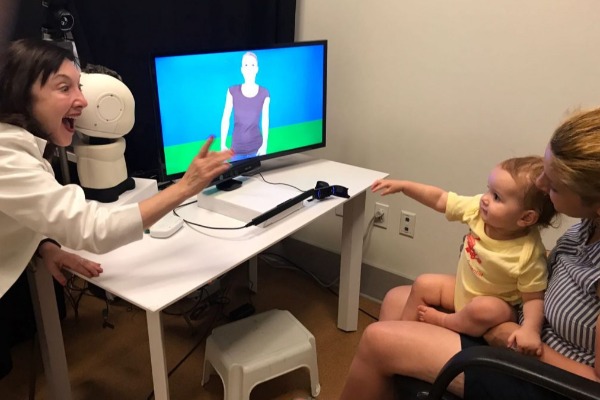Petitto Brain & Language Laboratory Completes Successful RAVE Pilot Launch

The Petitto Brain & Language Laboratory, BL2, (Petitto, Scientific Director) has successfully piloted its RAVE ("Robot Avatar Thermal-Enhanced") prototype learning tool with 25 infants over the course of five days. The pilot was successfully executed between June 25 – 30, 2017.
Insufficient minimal language exposure in very young children has been shown to have a devastating impact on these children’s ability to learn language and achieve normal reading and literacy skills. This can be particularly detrimental to young deaf children, who may also receive no accessible early life language experience.
As part of the W.M. Keck and NSF INSPIRE grant projects, the RAVE learning tool functions as a single integrated system featuring a robot, virtual human, thermal infrared imaging and eye-tracking.
This first-time simulation of joint attention and socially-contingent conversation in human-artificial agent interaction is intended to lift infants with minimal language input to a honed sensitivity to multiple components of human language structure.
If successful, RAVE will break the communication barrier that widely impacts many young children with minimal or no language and social interaction in early life.
RAVE features an innovative interdisciplinary The RAVE team includes the Petitto Brain & Language Laboratory for Neuroimaging at Gallaudet University (Petitto) and working remotely from University of Southern California (Traum), Yale University (Scassellati), and Universita d’Annunzio Chieti-Pescara (Merla).
Please email the BL2 team for more information.